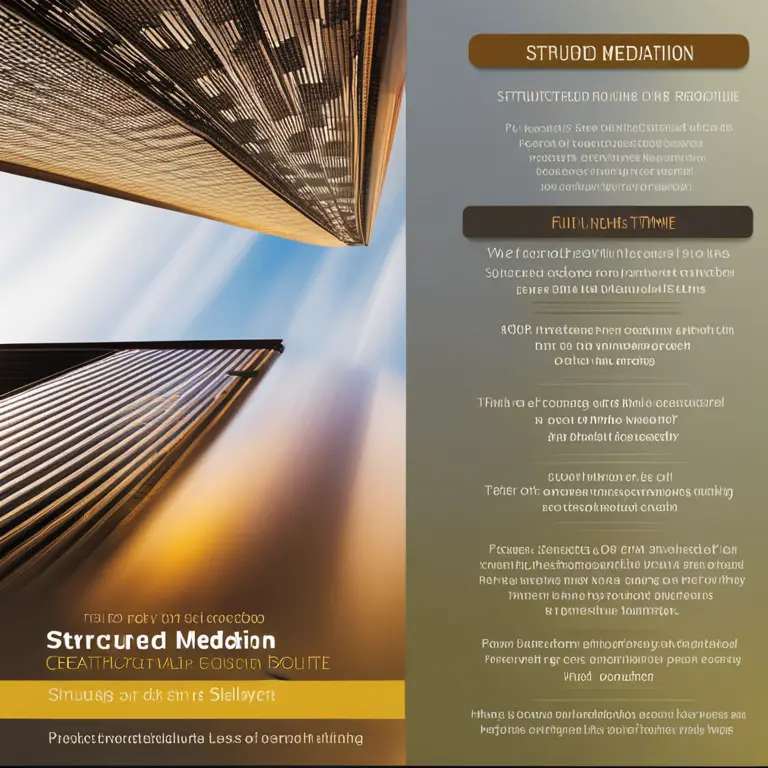
Meditation Techniques & Managing ADHD
Discover effective meditation practices that can help in managing Attention-Deficit/Hyperactivity Disorder (ADHD) symptoms.
article by Hina Kurosawa
Introduction to Meditation and ADHD
Meditation has long been practiced as a method for fostering inner peace and improving mental health. Recently, its potential benefits for individuals with Attention-Deficit/Hyperactivity Disorder (ADHD) have gained more spotlight. ADHD is characterized by symptoms such as inattention, impulsivity, and hyperactivity, which can impact various aspects of life. Meditation, with its various techniques, promises to offer a complementary approach to traditional ADHD therapies. Here, we delve into meditation practices tailored for those seeking to manage ADHD symptoms and enhance their focus and mindfulness.

The Benefits of Mindfulness Meditation
Mindfulness meditation teaches us to be present in the moment and observe our thoughts and feelings without judgment. For ADHD sufferers, this practice can be particularly beneficial, offering a way to slow down the racing mind and enhance self-regulation. Studies suggest that engaging in regular mindfulness meditation can improve attention span, reduce stress levels, and alleviate emotional reactivity – all areas that can be challenging for those with ADHD.

Structured Meditation for Routine
Creating a structured meditation routine can be fundamental for individuals with ADHD, as it fosters a sense of stability and predictability. Structured sessions, which involve sitting in silence and focusing on the breath or a mantra, can be scheduled during the times of day when the individual feels most distractible. This practice helps in cultivating a disciplined approach to managing attention, which can gradually transfer to other daily activities.

Concentration Meditation to Improve Focus
Concentration meditation, often involving the focus on a single point, such as the breath, a sound, or an image, can reinforce the attention muscles of the brain. For someone with ADHD, this method can be particularly challenging but also highly rewarding. By regularly practicing concentration meditation, one can experience improved focus and a reduction in impulsive thought patterns. The key is to start with short sessions and gradually increase the duration as concentration improves.

Yoga and Movement-Based Practices
Yoga and other movement-based meditation practices can be incredibly advantageous for those with ADHD, who may find it difficult to engage in seated meditation. Through poses and intentional movements, individuals can learn to control their bodies and by extension, their minds. Movement meditation helps in discharging excess energy and brings about a unique form of focus that combines physical and mental discipline.
Meditative Arts for Creative Expression
Engaging in meditative arts, such as tai chi, qigong, or even certain forms of dance, can serve as therapeutic outlets. These practices promote focus, flow, and mind-body connection, thereby proving to be excellent tools in the ADHD management toolbox. By channeling attention into creative expression, individuals with ADHD can find a meditative state that aligns with their natural inclinations towards movement and artistic activities.
Guided Meditations for Easier Practice
Guided meditations can offer a highly accessible entry point for those new to meditation or having trouble focusing due to ADHD. With a range of apps and online resources available, guided sessions provide structure and direction, leading individuals through relaxing scenarios or offering affirmations that help maintain focus and soothe the restless mind.
Published: 1/14/2024
Modified: 1/15/2024
More predictions
Come back here soon to learn more about yourself and your future


Healing Through Mindfulness: Meditation & Trauma Recovery
Mindfulness meditation offers a powerful tool for individuals seeking solace and healing from traumatic experiences. Discover how this practice can aid in the journey towards inner peace.


Easing Loneliness with Mindfulness Meditation
Explore how mindfulness meditation can provide solace and connection to alleviate the feelings of loneliness.


Easing Loneliness with Meditation
Discover how mindfulness meditation can provide solace and connection to mitigate feelings of loneliness, enhancing emotional and mental well-being.